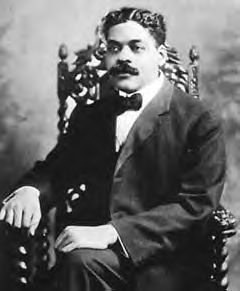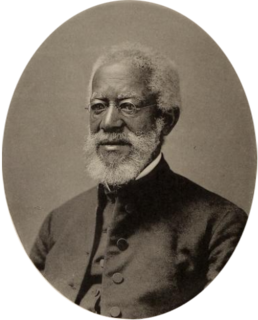A Quote by W. E. B. Du Bois
The Talented Tenth of the Negro race must be made leaders of thought and missionaries of culture among their people.
Related Quotes
The Negro race, like all races, is going to be saved by its exceptional men. The problem of education, then, among Negroes must first of all deal with the Talented Tenth; it is the problem of developing the Best of this race that they may guide the Mass away from the contamination and death of the Worst, in their own and other races.
The Talented Tenth is alive and well today and visible in all arenas of prominence. 'That they may guide the mass away from the contamination and death of the worst, in their own and other races.' As they elevate themselves from the masses, they ensure their success and that of their fellow Talented Tenth friends.
I looked on the television the other night and saw them beating a Negro unmercifully in Mississippi. And this is the result of a brainwashing technique, a certain power structure in the American government has paid these Negro integrationist leaders to perpetuate among our people. But it's not a good thing, and it will never solve our problem.
White Americans must be made to understand the basic motives underlying Negro demonstrations. Many pent-up resentments and latent frustrations are boiling inside the Negro, and he must release them. It is not a threat but a fact of history that if an oppressed people's pent-up emotions are not nonviolently released, they will be violently released.
My own convictions as to negro slavery are strong. It has its evils and abuses...We recognize the negro as God and God's Book and God's Laws, in nature, tell us to recognize him - our inferior, fitted expressly for servitude...You cannot transform the negro into anything one-tenth as useful or as good as what slavery enables them to be.
I maintain that I have been a Negro three times--a Negro baby, a Negro girl and a Negro woman. Still, if you have received no clear cut impression of what the Negro in America is like, then you are in the same place with me. There is no The Negro here. Our lives are so diversified, internal attitudes so varied, appearances and capabilities so different, that there is no possible classification so catholic that it will cover us all, except My people! My people!
The American Negro must rebuild his past in order to make his future. Though it is orthodox to think of America as the one country where it is unnecessary to have a past, what is a luxury for the nation as a whole becomes a prime social necessity for the Negro. For him, a group tradition must supply compensation for persecution, and pride of race the antidote for prejudice. History must restore what slavery took away, for it is the social damage of slavery that the present generation must repair and offset.
If you teach the Negro that he has accomplished as much good as any other race he will aspire to equality and justice without regard to race. Such an effort would upset the program of the oppressor in Africa and America. Play up before the Negro, then, his crimes and shortcomings. Let him learn to admire the Hebrew, the Greek, the Latin and the Teuton. Lead the Negro to detest the man of African blood--to hate himself.
Now, suppose a Negro does something really magnificent, and I glory, not in the benefit to mankind, but in the fact that the doer was a Negro. Must I not also go hang my head in shame when a member of my race does something execrable? . . . The white race did not go into a laboratory and invent incandescent light. That was Edison. . . . If you are under the impression that every white man is an Edison, just look around a bit.
We should emphasize not Negro History, but the Negro in history. What we need is not a history of selected races or nations, but the history of the world, void of national bias, race, hate, and religious prejudice. There should be no indulgence in undue eulogy of the Negro. The case of the Negro is well taken care of when it is shown how he has far influenced the development of civilization.
Slavery in America was perpetuated not merely by human badness but also by human blindness. ... Men convinced themselves that a system that was so economically profitable must be morally justifiable. ... Science was commandeered to prove the biological inferiority of the Negro. Even philosophical logic was manipulated [exemplified by] an Aristotlian syllogism:
All men are made in the image of God;
God, as everyone knows, is not a Negro;
Therefore, the Negro is not a man.


































